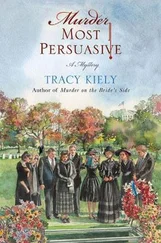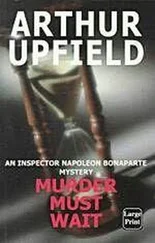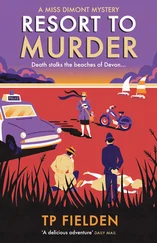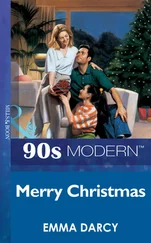“And a manuscript?”
“A manuscript is the writer’s completed work. It provides a record of how he arranged and revised his ideas, and how they were in turn adjusted for better or worse by an editor. But it is finished work. An unfinished manuscript...”
“Is a rehearsal?”
“That or something worse. I ask myself, what would Woolrich have wanted?”
“Another drink,” Edward Everett Stokes said, and leaned forward to help himself to more eggnog. “I take your point. Mihalyi. And Woolrich might well have preferred to have his unfinished work destroyed upon his death, but he left no instructions to that effect, so how can we presume to guess his wishes? Perhaps, for all we know, there is a single scene in the book that meant as much to him as anything he’d written. Or less than a scene—a bit of dialogue, a paragraph of description, perhaps no more than a single sentence. Who are we to say it should not survive?”
“Perigord,” Mihalyi said. “You are a writer. Would you care to have your unfinished work published after your death? Would you not recoil at that, or at having it completed by others?”
Philip Perigord cocked an eyebrow. “I’m the wrong person to ask,” he said. “I’ve spent twenty years in Hollywood. Forget unfinished work. My finished work doesn’t get published, or ‘produced,’ as they so revealingly term it. I get paid, and the work winds up on a shelf. And, when it comes to having one’s work completed by others, in Hollywood you don’t have to wait until you’re dead. It happens during your lifetime, and you learn to live with it.”
“We don’t know the author’s wishes,” Harriet Quinlan put in, “and I wonder how relevant they are.”
“But it’s his work,” Mihalyi pointed out.
“Is it, Zoltan? Or does it belong to the ages? Finished or not, the author has left it to us. Schubert did not finish one of his greatest symphonies. Would you have laid its two completed movements in the casket with him?”
“It has been argued that the work was complete, that he intended it to be but two movements long.”
“That begs the question, Zoltan.”
“It does, dear lady,” he said with a wink. “I’d rather beg the question than be undone by it. Of course I’d keep the Unfinished Symphony in the repertoire. On the other hand, I’d hate to see some fool attempt to finish it.”
“No one has, have they?”
“Not to my knowledge. But several writers have had the effrontery to finish The Mystery of Edwin Drood , and I do think Dickens would have been better served if the manuscript had gone in the box with his bones. And as for sequels, like those for Pride and Prejudice and The Big Sleep , or that young fellow who had the colossal gall to tread in Rex Stout’s immortal footsteps...”
Now we were getting onto sensitive ground. As far as Leo Haig was concerned, Archie Goodwin had always written up Wolfe’s cases, using the transparent pseudonym of Rex Stout. (Rex Stout = fat king, an allusion to Wolfe’s own regal corpulence. ) Robert Goldsborough, credited with the books written since the “death” of Stout, was, as Haig saw it. a ghostwriter employed by Goodwin, who was no longer up to the chore of hammering out the books. He’d relate them to Goldsborough, who transcribed them and polished them up. While they might not have all the narrative verve of Goodwin’s own work, still they provided an important and accurate account of Wolfe’s more recent cases.
See, Haig feels the great man’s still alive and still raising orchids and nailing killers. Maybe somewhere on the Upper East Side. Maybe in Murray Hill, or just off Gramercy Park...
The discussion about Goldsborough. and about sequels in general, roused Haig from a torpor that Wolfe himself might have envied. “Enough,” he said with authority. “There’s no time for meandering literary conversations, nor would Chip have room for them in a short-story-length report. So let us get to it. One of you took the manuscript, box and all, from its place on the shelf. Mr. Mihalyi, you have the air of one who protests too much. You profess no interest in the manuscripts of unpublished novels, and I can accept that you did not yearn to possess As Dark as It Gets , but you wanted a look at it, didn’t you?”
“I don’t own a Woolrich manuscript.” he said, “and of course I was interested in seeing what one looked like. How he typed, how he entered corrections . . .”
“So you took the manuscript from the shelf.”
“Yes,” the violinist agreed. “I went into the other room with it, opened the box, and flipped through the pages. You can taste the flavor of the man’s work in the visual appearance of his manuscript pages. The words and phrases x’d out, the pencil notations, the crossovers, even the typographical errors. The computer age puts paid to all that, doesn’t it? Imagine Chandler running Spel-Chek, or Hammett with justified margins.” He sighed. “A few minutes with the script made me long to own one of Woolrich’s. But not this one, for reasons I’ve already explained.”
“You spent how long with the book?”
“Fifteen minutes at the most. Probably more like ten.”
“And returned to this room?”
“Yes.”
“And brought the manuscript with you?”
“Yes. I intended to return it to the shelf, but someone was standing in the way. It may have been you, Jon. It was someone tall, and you’re the tallest person here.” He turned to our client. “It wasn’t you. But I think you may have been talking with Jon. Someone was, at any rate, and I’d have had to step between the two of you to put the box back, and that might have led to questions as to why I’d picked it up in the first place. So I put it down.”
“Where?”
“On a table. That one. I think.”
“It’s not there now,” Jon Corn-Wallace said.
“It’s not.” Haig agreed. “One of you took it from that table. I could, through an exhausting process of cross-questioning, establish who that person is. But it would save us all time if the person would simply recount what happened next.”
There was a silence while they all looked at each other. “Well, I guess this is where I come in,” Jayne Corn-Wallace said. “I was sitting in the red chair, where Phil Perigord is sitting now. And whoever I’d been talking to went to get another drink, and I looked around, and there it was on the table.”
“The manuscript, madam?”
“Yes, but I didn’t know that was what it was, not at first. I thought it was a finely bound limited edition. Because the manuscripts are all kept on that shelf, you know, and this one wasn’t. And it hadn’t been on the table a few minutes earlier, either. I knew that much. So I assumed it was a book someone had been leafing through, and I saw it was by Cornell Woolrich, and I didn’t recognize the title, so I thought I’d try leafing through it myself.”
“And you found it was a manuscript.”
“Well, that didn’t take too keen an eye, did it? I suppose I glanced at the first twenty pages, just riffled through them while the party went on around me. I stopped after a chapter or so. That was plenty.”
“You didn’t like what you read?”
“There were corrections,” she said disdainfully. “Words and whole sentences crossed out. new words penciled in. I realize writers have to work that way, but when I read a book I like to believe it emerged from the writer’s mind fully formed.”
“Like Athena from the brow of What’s-his-name,” her husband said.
“Zeus. I don’t want to know there was a writer at work, making decisions, putting words down and then changing them. I want to forget about the writer entirely and lose myself in the story.”
Читать дальше












